#capital of china
Photo

(via GIPHY)
#giphy#the great wall#chang cheng#great wall#shong guo shou du#china captial#capital of china#beijing
0 notes
Text
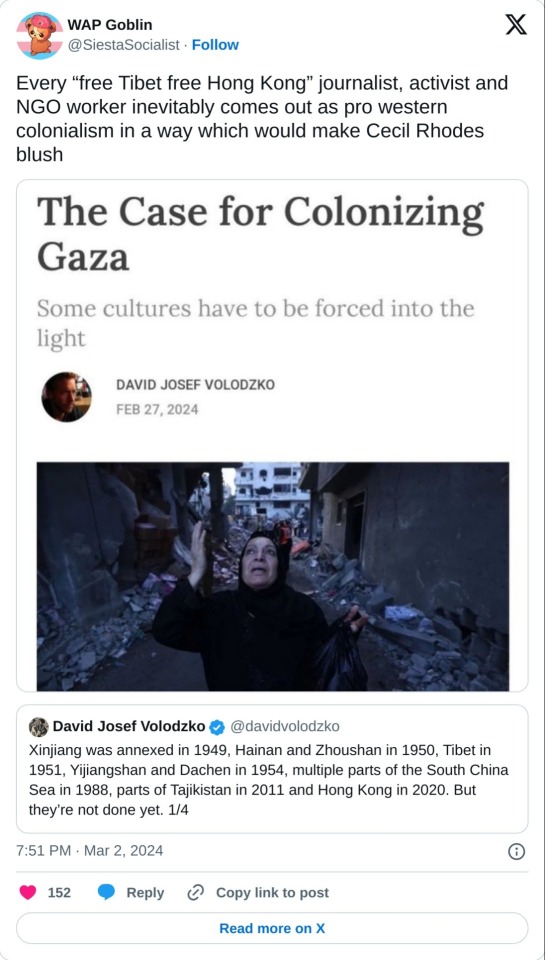
730 notes
·
View notes
Text

#china#anti capitalism#socialism#anarchy#communism#twitter post#rip twitter#leftism#tweet#twitter x#xitter#asia#taiwan#hong kong#asia pacific#chinatown#vietnam#cambodia#laos#cuba#cuban#ussr history#ussr#uss resolute#fuck the ussr#soviet union#russian history#soviet#stalin#world history
2K notes
·
View notes
Text
Because large-scale organising is “almost impossible” in China, women are turning to “all kinds of alternative ways to maintain feminism in their daily lives and even develop and transfer feminism to others,” she says. These may take the form of book clubs or exercise meet-ups. Some of her friends in China organise hikes. “They say that we are feminists, we are hiking together, so when we are hiking we talk about feminism.“ - Lü Pin
To find evidence that China’s feminist movement is gaining momentum – despite strict government censorship and repression – check bookshelves, nightstands and digital libraries. There, you might find a copy of one of Chizuko Ueno’s books. The 74-year-old Japanese feminist and author of Feminism from Scratch and Patriarchy and Capitalism has sold more than a million books in China, according to Beijing Open Book, which tracks sales. Of these, 200,000 were sold in January and February alone.
Ueno, a professor of sociology at the University of Tokyo, was little known outside in China outside academia until she delivered a 2019 matriculation speech at the university in which she railed against its sexist admissions policies, sexual “abuse” by male students against their female peers, and the pressure women felt to downplay their academic achievements.
The speech went viral in Japan, then China.
“Feminist thought does not insist that women should behave like men or the weak should become the powerful,” she said. “Rather, feminism asks that the weak be treated with dignity as they are.”
In the past two years, 11 of her books have been translated into simplified Chinese and four more will be published this year. In December, two of her books were among the top 20 foreign nonfiction bestsellers in China. While activism and protests have been stifled by the government, the rapid rise in Ueno’s popularity shows that women are still looking for ways to learn more about feminist thought, albeit at a private, individual level.
Talk to young Chinese academics, writers and podcasters about what women are reading and Ueno’s name often comes up. “We like-like her,” says Shiye Fu, the host of popular feminist podcast Stochastic Volatility.
“In China we need some sort of feminist role model to lead us and enable us to see how far women can go,” she says. “She taught us that as a woman, you have to fight every day, and to fight is to survive.”
When asked by the Guardian about her popularity in China, Ueno says her message resonates with this generation of Chinese women because, while they have grown up with adequate resources and been taught to believe they will have more opportunities, “patriarchy and sexism put the burden to be feminine on them as a wife and mother”.
Ueno, who found her voice during the student power movements of the 1960s, has long argued that marriage restricts women’s autonomy, something she learned watching her own parents. She described her father as “a complete sexist”. It’s stance that resonates with women in China, who are rebelling against the expectation that they take a husband.
Ueno’s most popular book, with 65,000 reviews on Douban, is simply titled Misogyny. One review reads: “It still takes a little courage to type this. I have always been shy about discussing gender issues in a Chinese environment, because if I am not careful, I will easily attract the label of … ‘feminist cancer’.”
“Now it’s a hard time,” says Lü Pin, a prominent Chinese feminist who now lives in the US. In 2015 she happened to be in New York when Chinese authorities arrested five of her peers – who were detained for 37 days and became known as the “Feminist Five” – and came to Lü’s apartment in Beijing. She narrowly avoided arrest. “Our movement is increasingly being regarded as illegal, even criminal, in China.”
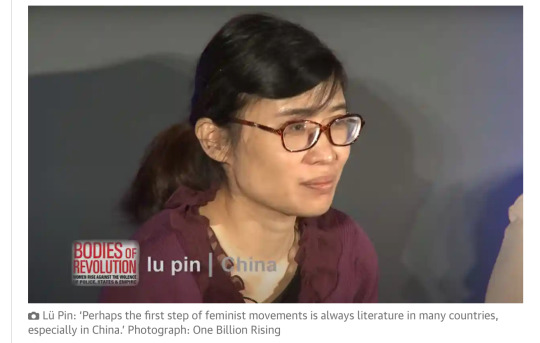
China’s feminist movement has grown enormously in the past few years, especially among young women online, says Lü, where it was stoked by the #MeToo movements around the world and given oxygen on social media. “But that’s just part of the story,” she says. Feminism is also facing much stricter censorship – the word “feminism” is among those censored online, as is China’s #MeToo hashtag, #WoYeShi.
“When we already have so many people joining our community, the government regards that as a threat to its rule,” Lü says. “So the question is: what is the future of the movement?”
Because large-scale organising is “almost impossible” in China, women are turning to “all kinds of alternative ways to maintain feminism in their daily lives and even develop and transfer feminism to others,” she says. These may take the form of book clubs or exercise meet-ups. Some of her friends in China organise hikes. “They say that we are feminists, we are hiking together, so when we are hiking we talk about feminism.
“Nobody can change the micro level.”
‘The first step’
In 2001, when Lü was a journalist starting out on her journey into feminism, she founded a book club with a group of friends. She was struggling to find books on the subject, so she and her friends pooled their resources. “We were feminists, journalists, scholars, so we decided let’s organise a group and read, talk, discuss monthly,” she says. They met in people’s homes, or the park, or their offices. It lasted eight years and the members are still among her best friends.
Before the book club, “I felt lonely when I was pursuing feminism. So I need friends, I need a community. And that was the first community I had.” “I got friendship, I deepened my understanding of feminism,” Lü says. “It’s interesting, perhaps the first step of feminist movements is always literature in many countries, especially in China.”
Lü first read Ueno’s academic work as a young scholar, when few people in China knew her name. Ueno’s books are for people who are starting out on their pursuit of feminism, Lü says, and the author is good at explaining feminist issues in ways that are easy to understand.
Like many Ting Guo discovered Ueno after the Tokyo University speech. Guo, an assistant professor in the department of cultural and religious studies at the Chinese University of Hong Kong, still uses it in lectures.
Ueno’s popularity is part of a larger phenomenon, Guo says. “We cannot really directly describe what we want to say, using the word that we want to use, because of the censorship, because of the larger atmosphere. So people need to try to borrow words, mirror that experience in other social situations, in other political situations, in other contexts, in order to precisely describe their own experience, their own feelings and their own thoughts.”
There are so many people who are new to the feminist movement, says Lü, “and they are all looking for resources, but due to censorship, it’s so hard for Chinese scholars, for Chinese feminists, to publish their work.”
Ueno “is a foreigner, that is one of her advantages, and she also comes from [an] east Asian context”, which means that the patriarchal system she describes is similar to China’s. Lü says the reason books by Chinese feminists aren’t on bestseller lists is because of censorship.
Na Zhong, a novelist who translated Sally Rooney’s novels into simplified Chinese, feels that Chinese feminism is, at least when it comes to literature, gaining momentum. The biggest sign of this, both despite and because of censorship, is “the sheer number of women writers that are being translated into Chinese” – among whom Ueno is the “biggest star”.
“Young women are discovering their voices, and I’m really happy for my generation,” she says. “We’re just getting started.”
By Helen R Sullivan
This is the third story in a three-part series on feminism and literature in China.
#China#Japan#Chizuko Ueno#Books for women#Feminism from Scratch#Patriarchy and Capitalism#Misogyny#Feminist Five#Lü Pin#WoYeShi
673 notes
·
View notes
Text

“People all over the world, take action to stop the US and British aggression”
People's Republic of China
c. 1950s
#propaganda#poster#vintage#imperialism#capitalism#communism#socialism#china#anti imperialism#british#uk#america#united states#us#prc#middle east#arab
163 notes
·
View notes
Text

Story
#this is amerikkka#china town#nyc#ftp#defund the police#defundthepolice#police brutality#capitalist system#capitalism kills#defund the police fund our communities#world tallest jail
333 notes
·
View notes
Text
Shein: Fast-fashion workers paid 3p per garment for 18-hour days, undercover filming in China reveals
It is the biggest fast-fashion company in the world, making billions of pounds by unveiling thousands of new designs on its addictive website every day and selling them cheaper than anyone else.
Now the first undercover investigation into factories supplying Shein, the Chinese retailer loved by millions of young women in the UK and around the globe, has exposed the disturbing experiences of workers making its clothes.
Garment manufacturers in China are often working up to 18 hours a day, being paid as little as 3p per item, with no weekends and only one day off per month, a Channel 4 team has found.
This treatment of workers – who are fined two thirds of their daily wage if they make a single mistake – breaks not only Shein's code of conduct for suppliers but also Chinese labour laws. The company says it will investigate.
A woman using the false name of Mei secretly filmed inside two factories where she took on jobs producing the kinds of tops that British shoppers can buy for as little as £1.49. The footage has been shared with i ahead of Untold: Inside the Shein Machine, streaming on All4 from Monday.
Women in one factory are found to be washing their hair during their lunch breaks, as they have so little spare time outside of their long shifts. A man who started work at 8am, but is filmed sitting shirtless at his sewing machine after midnight, says he will not finish until 2am or 3am because he needs to complete his batch
Woods says Shein is "head and shoulders" above other fashion brands in the number of "dark patterns" it uses online. "These are behaviours on the website that force you into actions that you might not choose yourself," he explains. "Data is making marketing like a loaded weapon."
Shein was contacted for comment by the documentary makers but did not respond on this matter.
Data published on 6 April by The Business of Fashion showed that in the year to date, Shein had launched 314,877 separate designs in the US market, compared to 18,343 in the same period by Boohoo. This relentless onslaught suggests customers have more than 3,000 new styles to potentially view every day
The contact arranged for "Mei", one of the journalists in his network, to infiltrate the Shein supply chain in Guangzhou, a south-eastern city with a population of 14 million. Having seen what she discovered, he says: "I have been doing investigative stories in China for 15, 16 years – still [they] exploit workers like dogs. Basically it's worse than years ago."
1K notes
·
View notes
Text
From 1981 to 1990, when most of China’s socialist provisioning systems were still in place, the country’s extreme poverty rate was on average only 5.6 per cent, substantially lower than in capitalist economies of comparable size and income at the time: 51 per cent in India, 36.5 per cent in Indonesia, and 29.5 per cent in Brazil. China's comparatively strong performance is corroborated by data on other social indicators. Moreover, extreme poverty in China increased during the capitalist reforms of the 1990s, reaching a peak of 68 per cent, as privatisation inflated the prices of essential goods and thus deflated the incomes of the working classes. These results indicate that socialist provisioning policies can be effective at preventing extreme poverty, while market reforms may threaten people's ability to meet basic needs.
Capitalist reforms and extreme poverty in China: unprecedented progress or income deflation?
210 notes
·
View notes
Text
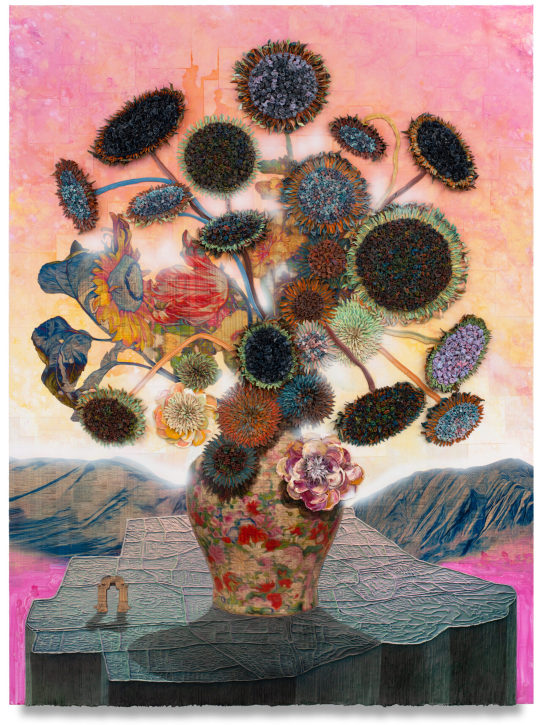


Bursting Blooms Link Modernity and History in Gordon Cheung’s Decadent Still-Life Paintings
388 notes
·
View notes
Text
The USSR wasn’t communist because communism requires democracy. Communism is not “the government owns things”, communism is a form of socialism, which means it’s a form of putting the means of production into the hands of the people. In a communist system, that power is invested in a government. But, that means that any communist country must have a democratically elected government that the people can hold accountable. The USSR was not that, China is not that, North Korea is not that. Therefore, they’re not communist, because dictatorships necessarily remove the power of the people to control production.
#socialism#communism#ussr#China#North Korea#capitalism#anti capitalism#leftism#leftist#left wing#democracy
66 notes
·
View notes
Text
Anyone who dissuades you from criticizing a state is no leftist
#israel#Yes I mean China too btw#Stop defending state capitalism#Stop defending ethnostates#Stop defending genocides#anarchism#commie posting
56 notes
·
View notes
Text

#instagram memes#instagram mention#instagram post#instagram app#instagram stuff#instagram account#instagram#memes#meme#leftist#leftism#leftist memes#socialist#socialist memes#socialism#marxism#marxist leninist#china#anti facist#anti capitalism#maoism#maoist#political#political posting#political memes#politics#left wing#left wing politics#communist#communist memes
78 notes
·
View notes
Text
youtube
Watch the 2024 American Climate Leadership Awards for High School Students now: https://youtu.be/5C-bb9PoRLc
The recording is now available on ecoAmerica's YouTube channel for viewers to be inspired by student climate leaders! Join Aishah-Nyeta Brown & Jerome Foster II and be inspired by student climate leaders as we recognize the High School Student finalists. Watch now to find out which student received the $25,000 grand prize and top recognition!
#ACLA24#ACLA24HighSchoolStudents#youtube#youtube video#climate leaders#climate solutions#climate action#climate and environment#climate#climate change#climate and health#climate blog#climate justice#climate news#weather and climate#environmental news#environment#environmental awareness#environment and health#environmental#environmental issues#environmental education#environmental justice#environmental protection#environmental health#high school students#high school#youth#youth of america#school
15K notes
·
View notes
Text

#vietnam war#usa#china#vietnam#singapore#anarchy#southeast asia#malta#leftism#socialism#communism#anti capitalism#capitalism#late stage capitalism#eat the rich#poverty#viet cong
116 notes
·
View notes
Text









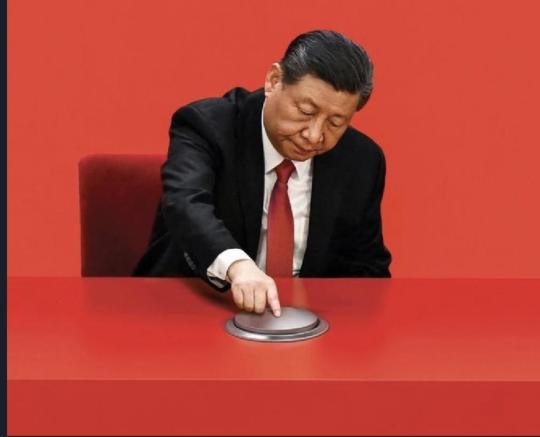
"Boldy go against the tide." Mao Zedong
#united front#meme#anticapitalism#communism#socialism#imperialism#free palestine#capitalism#office memes#the office#pirates of the caribbean#china#xi jinping#x men#x men 97#magneto#x men memes#watchmen#alan moore#anarchism
17 notes
·
View notes
Text
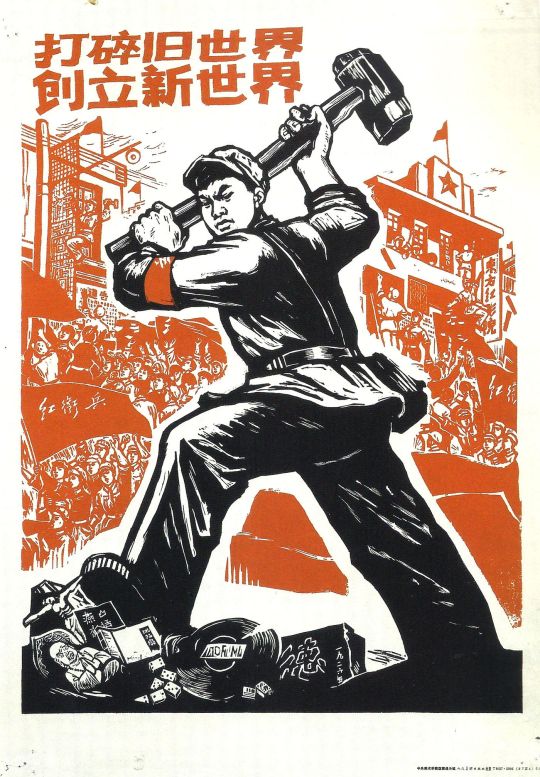
"Destroy the old world; Forge the new world."
The People's Republic of China
1968
#propaganda#poster#vintage#imperialism#capitalism#communism#socialism#china#prc#people's republic of china#mao#zedong
110 notes
·
View notes
Text
Ottawa's corporate ethics watchdog has announced an investigation into fashion company Ralph Lauren over the alleged use of forced labour in its supply chains.
Canadian Ombudsperson for Responsible Enterprise Sheri Meyerhoffer says it's not clear whether the company is doing enough to weed out components linked to the mistreatment of China's Uyghur minority.
Her report says that in response to her inquiries, Ralph Lauren insisted it's an American company that isn't subject to a Canadian probe before detailing its measures to prevent mistreatment.
Meyerhoffer also has asked Toronto-based mining company GobiMin to improve its policies to prevent the possible use of forced labour in its supply chains.
All four of the initial assessments the ombudsperson has announced so far relate to China's Xinjiang region, where most of the country's Uyghur population lives and where Beijing insists it has never allowed the use of forced labour. [...]
Continue Reading.
Tagging: @politicsofcanada
49 notes
·
View notes
Text
youtube
Watch the American Climate Leadership Awards 2024 now: https://youtu.be/bWiW4Rp8vF0?feature=shared
The American Climate Leadership Awards 2024 broadcast recording is now available on ecoAmerica's YouTube channel for viewers to be inspired by active climate leaders. Watch to find out which finalist received the $50,000 grand prize! Hosted by Vanessa Hauc and featuring Bill McKibben and Katharine Hayhoe!
#ACLA24#ACLA24Leaders#youtube#youtube video#climate leaders#climate solutions#climate action#climate and environment#climate#climate change#climate and health#climate blog#climate justice#climate news#weather and climate#environmental news#environment#environmental awareness#environment and health#environmental#environmental issues#environmental justice#environment protection#environmental health#Youtube
14K notes
·
View notes